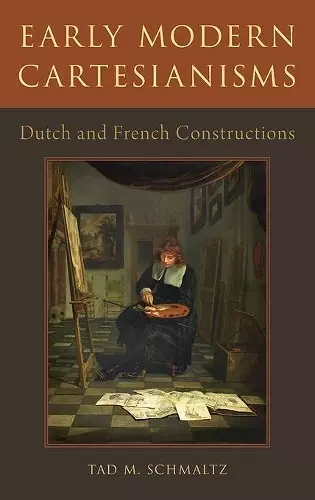Early Modern Cartesianisms
Dutch and French Constructions
Format:Hardback
Publisher:Oxford University Press Inc
Published:8th Dec '16
Currently unavailable, and unfortunately no date known when it will be back

There is a general sense that the philosophy of Descartes was a dominant force in early modern thought. Since the work in the nineteenth century of French historians of Cartesian philosophy, however, there has been no fully contextualized comparative examination of the various receptions of Descartes in different portions of early modern Europe. This study addresses the need for a more current understanding of these receptions by considering the different constructions of Descartes's thought that emerged in the Calvinist United Provinces (Netherlands) and Catholic France, the two main centers for early modern Cartesianism, during the period dating from the last decades of his life to the century or so following his death in 1650. It turns out that we must speak not of a single early modern Cartesianism rigidly defined in terms of Descartes's own authorial intentions, but rather of a loose collection of early modern Cartesianisms that involve a range of different positions on various sets of issues. Though more or less rooted in Descartes's somewhat open-ended views, these Cartesianisms evolved in different ways over time in response to different intellectual and social pressures. Chapters of this study are devoted to: the early modern Catholic and Calvinist condemnations of Descartes and the incompatible Cartesian responses to these; conflicting attitudes among early modern Cartesians toward ancient thought and modernity; competing early modern attempts to combine Descartes's views with those of Augustine; the different occasionalist accounts of causation within early modern Cartesianism; and the impact of various forms of early modern Cartesianism on both Dutch medicine and French physics.
Range, scholarship and clarity will make EMC of interest to many readers. Descartes-scholars will learn from it how malleable the thought of the master became in the hands of his disciples. Specialists of the eighteenth century will welcome this review of the many areas in which both the French and Dutch Enlightenment remained indebted to Descartes. Every philosophical library will need a copy. * Science et Esprit *
ISBN: 9780190495220
Dimensions: 239mm x 155mm x 33mm
Weight: 658g
394 pages